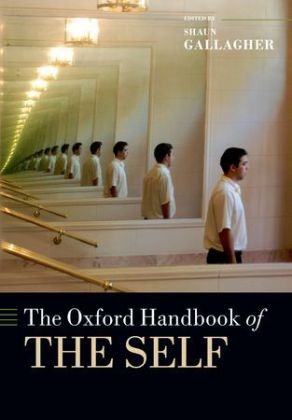Ulteriori informazioni
Research on the topic of self has increased significantly in recent years across a number of disciplines, including philosophy, psychology, psychopathology, and neuroscience. The Oxford Handbook of the Self is an interdisciplinary collection of essays that address questions in all of these areas. In philosophy and some areas of cognitive science, the emphasis on embodied cognition has fostered a renewed interest in rethinking personal identity, mind-body
dualism, and overly Cartesian conceptions of self. Poststructuralist deconstructions of traditional metaphysical conceptions of subjectivity have led to debates about whether there are any grounds (moral if not metaphysical) for reconstructing the notion of self. Questions about whether selves actually exist or
have an illusory status have been raised from perspectives as diverse as neuroscience, Buddhism, and narrative theory. With respect to self-agency, similar questions arise in experimental psychology. In addition, advances in developmental psychology have pushed to the forefront questions about the ontogenetic origin of self-experience, while studies of psychopathology suggest that concepts like self and agency are central to explaining important aspects of pathological experience. These and
other issues motivate questions about how we understand, not only "the self", but also how we understand ourselves in social and cultural contexts.
Sommario
- Introduction: A diversity of selves
- 1. Self: Beginnings and basics
- 1: John Barresi and Raymond Martin: History as Prologue: Western Theories of the Self
- 2: Philippe Rochat: What is it like to be a newborn?
- 3: Gordon G. Gallup, Jr., James R. Anderson, and Steven M. Platek: Self-recognition
- 4: Kai Vogeley and Shaun Gallagher: Self in the brain
- 2. Bodily selves
- 5: Quassim Cassam: The embodied self
- 6: José Bermúdez: Body awareness and self-consciousness
- 7: Manos Tsakiris: The sense of body ownership
- 8: Dorothée Legrand: Phenomenological dimensions of bodily self-consciousness
- 9: Aaron Henry and Evan Thompson: Witnessing from Here: Self-Awareness from a Bodily versus Embodied Perspective
- 3. Phenomenology and metaphysics of self
- 10: Galen Strawson: The minimal subject
- 11: Thomas Metzinger: The no-self alternative
- 12: Mark Siderits: Buddhist Non-Self: The No-Owner's Manual
- 13: Dan Zahavi: Unity of consciousness and the problem of self
- 4. Personal identity, narrative identity, and self-knowledge
- 14: John Campbell: Personal identity
- 15: Sydney Shoemaker: On what we are
- 16: John Perry: On knowing your self
- 17: Marya Schechtman: The narrative self
- 5. Action and the moral dimensions of self
- 18: Derek Parfit: The unimportance of identity
- 19: Elisabeth Pacherie: Self-agency
- 20: Alfred Mele: Self-control in action
- 21: David Shoemaker: Moral responsibility and the self
- 6. Self pathologies
- 22: Josef Parnas and Louis Sass: The structure of self-consciousness in schizophrenia
- 23: Jennifer Radden: Multiple selves
- 24: Peter Hobson: Autism and the self
- 25: Marcia Cavell: The self: Growth, integrity, and coming apart
- 7. The self in diverse contexts
- 26: Richard Menary: Our Glassy Essence: the Fallible Self in Pragmatist Thought
- 27: Kenneth Gergen: The social construction of self
- 28: Hubert Hermans: The Dialogical Self: A Process of Positioning in Space and Time
- 29: Elspeth Probyn: Glass Selves: Emotions, subjectivity, and the research process
- 30: Leonard Lawlor: The Postmodern Self: An Essay on Anachronism and Powerlessness
- 31: Lorraine Code: Self, subjectivity, and the instituted social imaginary
Info autore
Shaun Gallagher is Professor of Philosophy and Cognitive Sciences, and Senior Researcher at the Institute of Simulation and Training, at the University of Central Florida (USA); he has secondary research appointments at the University of Hertfordshire and the University of Copenhagen. He has been Visiting Scientist at the Cognition and Brain Sciences Unit, Cambridge, and Visiting Professor at the University of Copenhagen, the Centre de Recherche en Epistémelogie Appliquée (CREA), Paris, and the Ecole Normale Supériure, Lyon.
Riassunto
The Oxford Handbook of the Self explores a fascinating diversity of questions about our understanding of self from a variety of interdisciplinary perspectives, including philosophy, ethics, psychology, neuroscience, psychopathology, narrative, and postmodern theories.
Testo aggiuntivo
an outstanding array of articles ... an excellent, interdisciplinary resource for teaching and research.
Relazione
an outstanding array of articles ... an excellent, interdisciplinary resource for teaching and research. John P. Lizza, Notre Dame Philosophical Reviews

